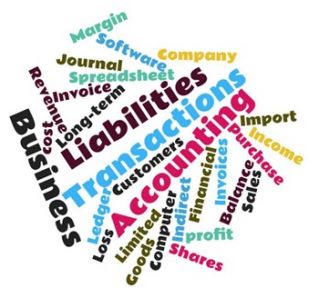New To Your Books? Terms You Need To Know
If you’re just starting to navigate your books, you may be unsure of some of the lingo. It’s like a different language for those outside of the accounting world, but the more you work with your books, the quicker you’ll catch on. What’s important is to think of everything in terms of your business; these terms provide you with vital information about your company’s standing. Let’s go over some common terms you’ll frequently hear and need to use in order to discuss and understand your books.

Accounts Payable (A/P) refers to the money you owe to others. Try not to get this mixed up with Accounts Receivable (A/R), which is the money others owe to you. If there ever comes a time that you run into uncollectible accounts receivable (a.k.a. The people who owe you money aren’t paying you), then this is considered bad debt. On the flip side, the debts you owe other businesses is considered your liability. This includes your accounts payable, credit cards, and loans.
It’s vital to know the differences between assets and equity. An asset is a valuable item your business owns. This could be money in the bank, your accounts receivable, equipment, vehicles, buildings, and more. Equity refers to how much you have invested into your business OR taken out. Your profit from your business will show up here.
There are three statements that include incredibly useful information about your business’s financial health. These include a balance sheet, a profit and loss report, and a cash flow statement. Each informs you of different financial aspects of your company. A balance sheet is a list of your company’s assets, liabilities, and equities. A profit and loss report, also called an income statement, shows you how well your business did for a specific period of time (month/quarter/year). You should check this report on a regular basis to ensure you have your company’s most up-to-date information on hand. A cash flow statement shows you how all the pieces of your company work together. It shows you how changes to the balance sheet and income can impact your cash or cash equivalents. It breaks down your company activity into three categories: financing, operations, and investing.
These are only a few of the terms you need to know to thrive at your bookkeeping! If you run into any issues or questions along the way, please reach out to a trusted bookkeeper, or contact us.
.png?token=6adcf38ed58846e4f05e97718ba6eb6d)